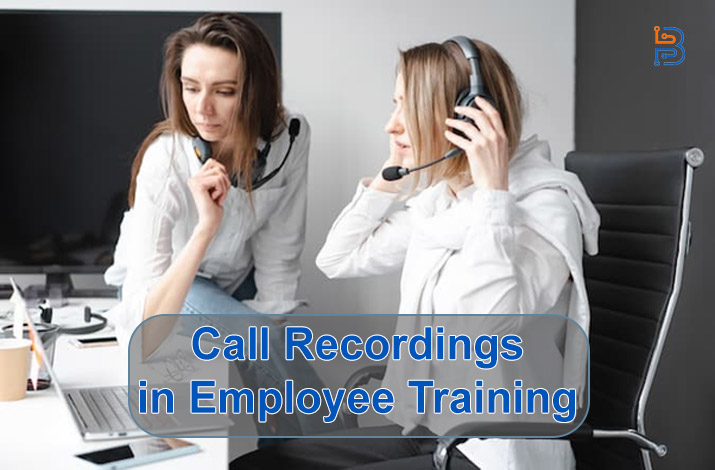Strategies for Leveraging Call Recordings in Employee Training and Development

Employee growth and a company’s journey to success thrive on training and coaching, which are more than just mere checkboxes. An impressive 83% of top-performing customer service agents confirm receiving the necessary training to excel. Businesses are investing a staggering $90 billion annually into agent training, representing a 32.5% year-over-year surge. The emphasis is crystal clear.
Difficulties in Employee Training
When it comes to agent training and coaching, traditional methods often encounter obstacles that hinder businesses and support agents from maximizing their effectiveness. These challenges include:
Inconsistent Training Standards
Imagine encountering two trainers: one favors role-playing while the other relies on lectures. Exposing agents to both methods can lead to confusion or mixed directives. This highlights the importance of consistent training standards. Without a standardized approach, the quality of training fluctuates, resulting in varied agent performance.
Lack of Real-world Context
Learning without real call recordings is like swimming without water. Imagine being trained theoretically and then faced with a complex customer scenario. The disconnect is immediate. Real calls present unpredictable challenges, nuances, and emotions that theory cannot cover.
Subjectivity in Performance Assessment
To evaluate agent performance, it is crucial to establish metrics and consistently measure performance against them. Relying solely on subjective opinions does little to enhance overall agent performance.
Two supervisors may have contrasting opinions on an agent’s performance. Objective metrics derived from actual calls provide a clear and unbiased view, ensuring fair and actionable feedback.
Benefits of Phone Recording for Business During Employee Training
1. Authentic Interactions
When you expose agents to actual call recordings, they experience the genuine dynamics of customer interactions. These recordings present them with the unpredictability, emotion, and complexity in real-world situations.
For instance, through real interactions, you can better understand and address the subtle tone shifts of an increasingly frustrated customer or the specific phrasing of a complicated query. Training that is grounded in theory can only take you so far.
2. Objective Performance Evaluation
You should not depend on instinct. Utilize call recordings to obtain objective evaluations. By analyzing a series of recorded interactions, trainers can provide metrics on how often agents interrupt customers or miss important information. Tangible data like this offers clear areas for improvement to the agents.
A financial services company in the UK, for example, enhances its quality scores by 12.5% for its customer service and renewal teams using a strategy that is based on recordings for training.
By default, iPhone and Android do not offer call recording features. To do this, you need to use the iPhone call recorder app, which compensates for this gap in functionality. Along with the capabilities of the phone recording app, you also take responsibility for processing customer data. You must comply with the regulator’s requirements if your company uses recording calls. If you comply with legal regulations, then the iCall call recorder will be an excellent tool for effective staff training using real examples. It has an iPhone phone recorder feature to take voice notes. To test the application, you can use the free trial version.
3. Holistic Skill Development
You can utilize call recordings for more than just identifying errors. They can showcase moments when exceptional soft skills are put into action. For instance, replay a call where an agent’s active listening abilities turned an unhappy customer into a loyal one.
4. Feedback
Agents in the training world focus on repetition and reflection. By regularly reviewing calls, agents can witness their strengths and weaknesses firsthand. Rather than offering generic advice like “be more empathetic,” it’s more effective to play a segment of the agent’s conversation and pinpoint the precise moments where empathy could have made a difference.
5. Measuring Training Effectiveness
After your training sessions, validate your agents’ progress by using call recordings. For example, if you have trained them on upselling, listen to calls later to assess how they implement the techniques. This will ensure that your agents effectively apply the skills acquired during training in real-time.
6. Quality Monitoring
To maintain excellent call quality, call centers must utilize call recordings effectively. Unfortunately, traditional quality assurance processes only analyze a small portion of agents’ monthly calls, leaving valuable data untapped and hindering managers’ accurate evaluation of agent performance.
Conclusion
Call recordings have become invaluable tools for gaining actionable insights and enhancing training. You can leverage actual call recordings to give new agents a sense of customer interactions and build genuine repositories of successful calls that showcase the best techniques.






